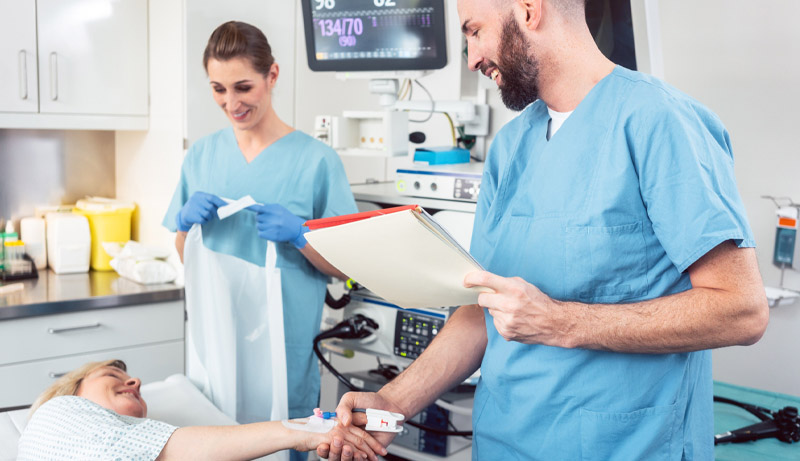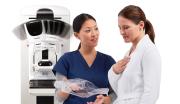
Cancer screenings look for cancer before symptoms appear and can help detect cancer at an early stage. When early-stage cancers are discovered, there are more treatment options available. Also, there is a better chance of removing the cancer before it spreads. Cancer screening could save your life.
According to the Centers for Disease Control and Prevention (CDC), men and women should receive cancer screenings as they age. Please consult with your healthcare provider about how to proceed with cancer screenings that are appropriate for you.
The CDC recommends the following cancer screenings for adults with average risk.
Screening for Women
Breast Cancer (Optional 40-44, begin screening at Age 45)
There are 2 screening tests that are used to detect breast cancer:
- Mammogram: An X-ray picture of the breast.
- Breast Magnetic Resonance Imaging (MRI): Uses magnets and radio waves to take pictures of the breast.
Other breast exams include:
- Clinical Breast Exam: An examination by a doctor or nurse, who uses his or her hands to feel for lumps or other changes.
- Breast Self-Awareness: A self-exam can help women detect symptoms such as lumps, pain, or size changes that may be concerning. Any noticeable changes should be reported to a doctor or health care provider.
Cervical Cancer (Begin screening at Age 25)
The Pap test and the HPV test can help prevent cervical cancer or find it early.
- The Pap test (or Pap smear) looks for precancers, cell changes on the cervix.
- The HPV test looks for the virus that can cause these cell changes.
Screening for Men
Prostate Cancer (Begin screening at Age 45)
Two tests that are commonly used to screen for prostate cancer are described below.
- Prostate Specific Antigen (PSA) Test: A blood test that measures the level of PSA in the blood.
- Digital Rectal Examination (DRE): A physical examination completed by a gloved healthcare provider.
Screening for Men and Women
Lung Cancer (Begin screening at Age 50)
- The only recommended screening test for lung cancer is low-dose computed tomography (also called a low-dose CT scan, or LDCT). The scan only takes a few minutes and it is not painful.
Colorectal (Begin screening at Age 45)
There are many screening tests for this type of cancer, two are listed below:
- Fecal immunochemical test (FIT): A test that uses antibodies to detect blood in the stool.
- Colonoscopy: A long, thin, flexible, lightened tube is used to check for polyps or cancer inside the rectum and the entire colon.










